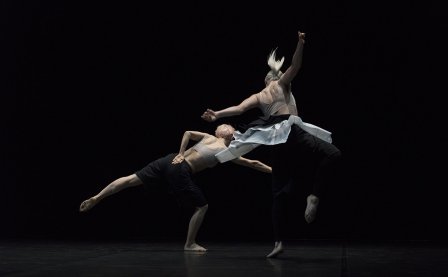ACTIVE SOUND CONTROL
“Keeping the outside out. It’s that kind of thrill.”
Snow drifts blowing outside my window, I cozy up in my laptop screen, Max Renn-ing into the infinite scrolldrome of timelines, headfirst into the dashboard. It’s during these late-night dives that I face the dissolution of the listening-I, become passive and inattentive, carelessly disembodied, staring into streams. After a while, I catch myself not listening to anything. The silence I couldn’t hear shocks me back to attention. Where had I been? How’d I not notice?
If I don’t then automatically press play in the minimized iTunes window, I might sit for a minute with the noise coming through my headphones from outside — the muted hum of the refrigerator, the barely audible buzz of my aging laptop, Lake Michigan winter wind — to try to listen beyond the unintentional insulation of my compromised audition.
On last year’s Wilderness of Mirrors, English grappled with that kind of conditioned unawareness. Making noise about the willful ignorances of mass culture and the misleading nature of forgiving lights, he charged us to look away from ourselves and listen for the politics in the shadows of sound. Surrounded by increasing ecological and social injustices, English forced us into conversation with the looping complacency of pop-reflexivity, and the material conditions it hyperrealized. A shower of distortion to cloud our irresponsible wilderness of mirrors.
But enough of that noise: With the field recordings of Viento, English offers the wilderness itself, keeping the inside out.
Viento begins without introduction. The “Patagonia” windstorm seems to be coming from every direction. The world is barely held together, threatening to come apart. The force of the wind is immediate, but as it wears on, the impulse to batten down the hatches is replaced with an appreciation for the subtle variations in contours, incidental noises, wildlife, the persistence of what might be waves or gales, and everything else the recording invokes.
THE WIND MAKES IT TOO HARD TO HEAR
“Where does human — yes, human — ethics find a dwelling in this cloudy chaosmos?”
What’s to keep the listener from seeking out and finding a transcendental, real experience in these recordings? Viento could promise a Rekall-esque escape (experience the thrilling sounds of Antarctic winds without the cold), the same sort of wilderness bliss that English is trying to undo. But rather than fall into step with the nowhere-gaze of mirror-screens, the listener can situate themselves as a listener engaged with his bracing site-specific soundscapes of Antarctica and Patagonia.
Viento invites an impossible enfolding of audition. English believes in activated listening as creative, participatory attention. The ear and microphone represent horizons of experience that can be meshed through a successful field recording’s transmission of the act. He calls it relational listening. If you “open your ears,” the recordings have the affect and effect of forgetting or unknowing boundaries — it’s that kind of thrill — not to transcend ourselves, but to remind the listener our binding in a planetary precarity and relational ethics that otherwise goes without saying.
The howling wind is texturally intriguing, abrasive, and even therapeutic, but it could also easily become background noise unless you’re choosing to engage, to listen. This activation is important, because, for English, the process of relational listening seems to represent or even enable a politicized consciousness. The listener’s commitment to the collapse of their own listening-I with the listening-microphone is a way of tuning in, of forgetting the rituals that deaden themselves to their entanglement.
Viento is a forceful work, endlessly listenable in the recording’s detailed reliefs and movements, but forgettable by default — its noise is incomprehensible. It drags listening beyond the hyperreal into a web of infinitely unknowable sound, wherein the listener remembers the possibility of active listening and, maybe then, of activism. “Antarctica” fades slowly, as if the winds are dying down, into silence. But we find ourselves still listening.
More about: Lawrence English




